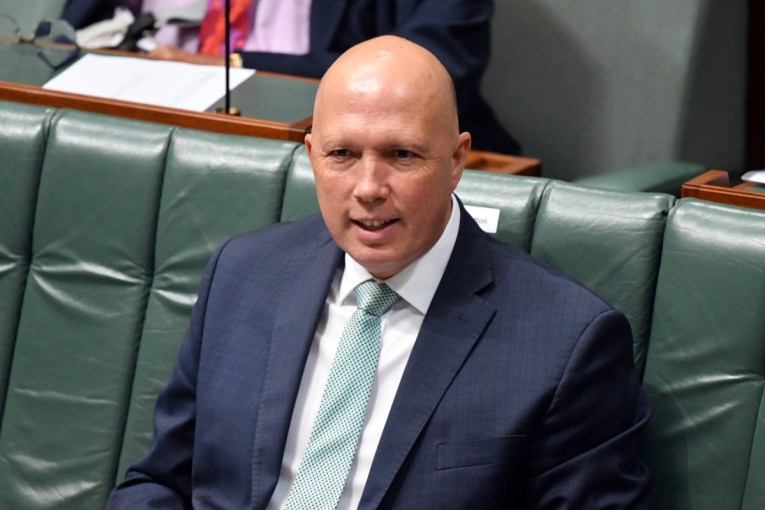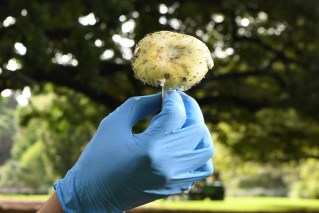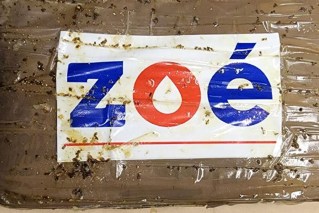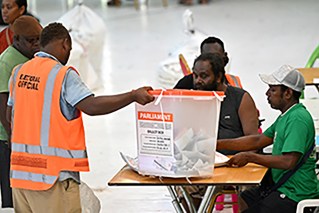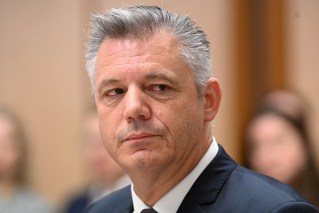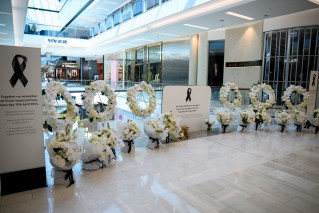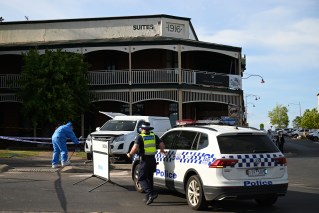Election 2019: Queensland voters are like no others – and they could decide the election
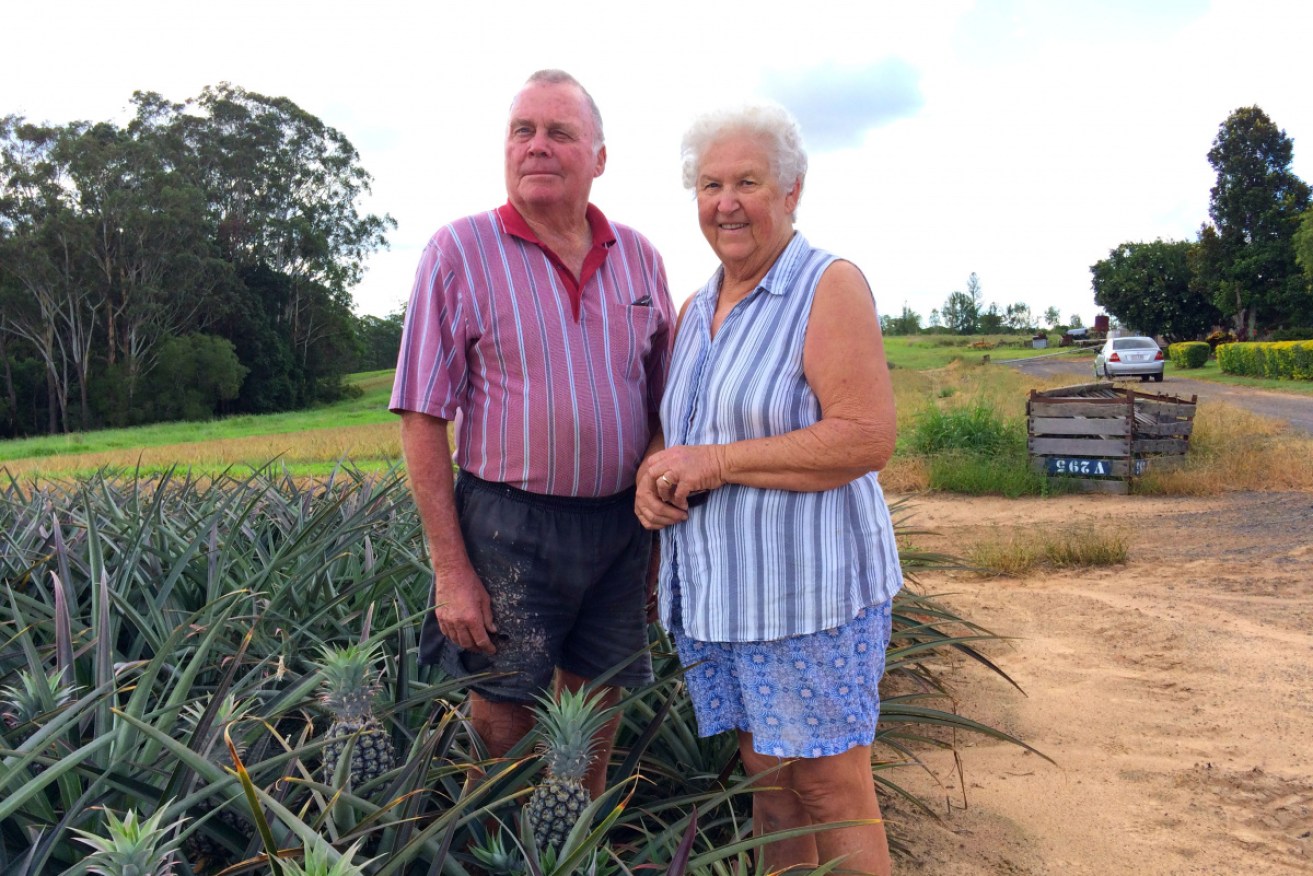
Federal politicians want the vote of regional Queenslanders like pineapple farmers Barry and Joan Harvey. Photo: Kat Donaghey
Pineapple farmer Joan Harvey gave her vote to One Nation last federal election but this time, the rural Queenslander says, she “won’t make that mistake again”.
Having dabbled with a minor party in 2016, Mrs Harvey will be more careful, although she admits some admiration for Bob Katter, whom she describes as “fair dinkum” and a “genuine bloke”.
Queenslanders like Mrs Harvey are usually the most courted at federal elections because the people of this vast and unpredictable state often decide who will rule the nation.
Voters in the Sunshine State are also the most likely to give major parties the flick and flirt with minor parties.
In 2016, One Nation and Katter’s Australian Party received strong support in Queensland on first preferences compared to negligible results in the other states, and the Palmer United Party received 11 per cent support in Queensland in 2013 compared to 5.49 per cent nationally.
But as the Coalition and Labor focus attention on the people up north in campaign 2019, both sides must walk a line between the perceived needs and grievances of regional Queenslanders and those of the urban dwellers of Victoria.
Political analyst Dr Paul Williams, from Griffith University, said differences between the two key states has manifested in an “ungainly” campaign as Scott Morrison and Bill Shorten attempt to appeal to opposing sensibilities.
A different kind of voter
The Adani coal mine is an obvious issue in contention, with regional Queenslanders crying for jobs and urban Victorians vocalising environmental opposition.
Queensland is Australia’s most decentralised state and its voters, Dr Williams said, are unlike anywhere else in the country.
“Queensland really is different and it goes well back to the 19th century,” Dr Williams said, pointing to the state’s rural-based industries such as farming and mining, and country demographics, which have shaped not only the economy but the state psyche.
Dr Williams says the “demands of regionalism” and the fact that most Queenslanders live outside the capital city have moulded a state that identifies with “country-mindedness” and admires the virtues of the “man on the land”.
This smaller-town mentality fosters an outlook that opposes the “elite” and sympathises with outspoken renegade politicians who turn their backs on the establishment.
Historically, Dr Williams said Queensland is also less educated and “whiter” than the other states, which enabled race politics to take hold in a time of globalisation.
“Monoculture, lower education and populist grievances have pushed people away from mainstream politics,” Dr Williams said.
“But Queensland is rapidly changing.”
Who’s hot and who’s not
A recent Galaxy poll found support for One Nation nationally has fallen 4 per cent since its peak in 2016 and Dr Williams said even in Queensland the headline-drawing party is “on the nose”.
Meanwhile Clive Palmer’s “days are gone” – although a recent Newspoll shows revived support which could give him bargaining power – and although Bob Katter is an entertaining character his political support is largely confined to the far north.
Dr Williams said Queensland would be ripe territory for the Shooters, Fishers and Farmers Party to pick up former One Nation votes but it does not have enough of a foothold in the state.
Construction worker and father-of-two Chris Paterson, the One Nation candidate for Fisher, which stretches from tourist beaches to country farmlands, said he still believes voters are looking for an alternative to the major parties.
Mr Paterson decided to run for politics after taking calls at the mental health charity he founded from pensioners who couldn’t afford to eat.
“I’m getting calls every day; more and more people saying, ‘We need you in, we need you in’,” he said.
“I personally know what it’s like to put items back on the supermarket shelf. People are concerned with the cost of living. The stuff that politicians talk about like taxes is white noise.”
However, it remains to be seen how Queensland’s “man-on-the-land” voters will cast their ballot this year.
Mrs Harvey’s husband Barry has traditionally voted conservative for country parties but is also disillusioned with the adversarial nature of modern politics.
He said he would like to see more politicians standing independently. rather than toeing party lines.
“We don’t know enough about politics and the balance of trade but we decide who we like by how they come across,” he said.
“Someone said you need to vote independent to kick the bigger parties out.”
